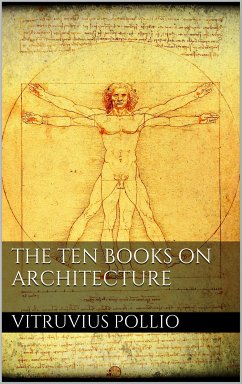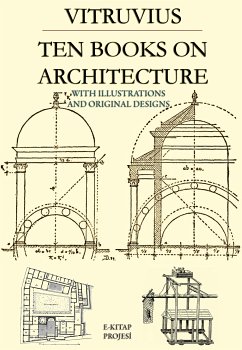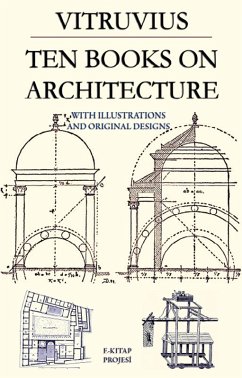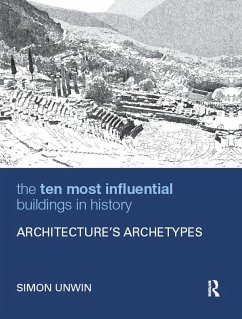
The Ten Books on Architecture (eBook, ePUB)

PAYBACK Punkte
0 °P sammeln!
Vitruvius Pollio's "The Ten Books on Architecture" stands as a seminal text in the canon of architectural literature, offering a comprehensive treatise that intricately weaves theory, philosophy, and practical guidance. Composed in the first century BC, this work reflects the literary style of classical rhetoric rife with detailed explanations and systematic organization. Vitruvius, addressing a Roman audience, elucidates design principles, the scientific foundations of architecture, and the essential relationship between human life and architectural forms, underscoring the importance of propo...
Vitruvius Pollio's "The Ten Books on Architecture" stands as a seminal text in the canon of architectural literature, offering a comprehensive treatise that intricately weaves theory, philosophy, and practical guidance. Composed in the first century BC, this work reflects the literary style of classical rhetoric rife with detailed explanations and systematic organization. Vitruvius, addressing a Roman audience, elucidates design principles, the scientific foundations of architecture, and the essential relationship between human life and architectural forms, underscoring the importance of proportion and symmetry in the built environment. Vitruvius himself was an accomplished architect and engineer, likely influenced by the tumultuous political landscape of Ancient Rome and the intertwining of architecture with civic identity. His experiences in military engineering and observations of preceding Hellenistic styles informed his views on institutional and residential design, emphasizing functionality and aesthetic harmony. Vitruvius sought to codify architectural practices of his day, ensuring that knowledge would be preserved for future generations. Readers interested in architecture, engineering, or classical history will find "The Ten Books on Architecture" invaluable, as it not only serves as a manual for practitioners but also as a philosophical exploration of space-making. Its enduring principles resonate across the centuries, providing insights into the essential elements of design, thereby securing its place as a cornerstone text that remains relevant in contemporary discourse on architecture.
Dieser Download kann aus rechtlichen Gründen nur mit Rechnungsadresse in A, B, BG, CY, CZ, D, DK, EW, E, FIN, F, GR, H, IRL, I, LT, L, LR, M, NL, PL, P, R, S, SLO, SK ausgeliefert werden.













